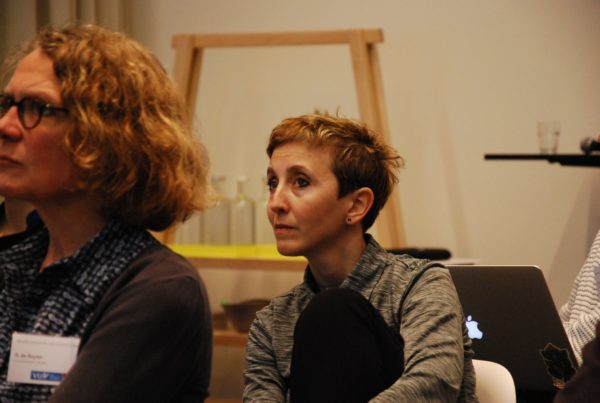What are universities good for? What are the ideas that breathe life into them? This was the central question addressed at the opening symposium of our new research project The Epistemic Responsibilities of the University.
Written by Jeroen de Ridder
Sloppy Science
One of the core responsibilities of the university undoubtedly is the pursuit of truth. While it may be tempting to think of grave academic misconduct — fraud, fabrication, plagiarism — as the most serious threat to this, Lex Bouter (VU Amsterdam) argued that the effects ‘sloppy science’ — the big grey area of research practices that aren’t obviously wrong but nonetheless questionable — may actually be much worse. While downright fraud is rare, questionable research practices are quite common. As a result, a lot of research (and money) is simply wasted. To change this, Lex Bouter proposed, we need to change research cultures from the bottom up so that researchers feel free to discuss their dilemmas, to point out problems in their colleagues’ work, and to learn from each other.*
Science can and should serve society
Trudy Dehue (Groningen) emphasized that the pursuit of truth should not be disconnected from the concrete concerns of contemporary societies. Scientists should not think of ‘relevance’ or ‘impact’ as an afterthought or a necessary evil. Rather, science can and should serve society. Ideally, citizens even ought to have their say in what sort of questions are pursued and how they are pursued.
The problem of external funding
Scientists and scholars in the Netherlands are typically expected to seek external funding for their research projects, for example with national funding agencies such as NWO and ZonMw. Hans Radder (VU Amsterdam) discussed a number of problems with this system. The system generates very substantial hidden costs through unaccounted for efforts that go into writing and reviewing applications, committee work, and organization costs. Hence, it is very much an open question whether it is ultimately a cost effective way of allocating research money.
Gross academic value
Just as focusing exclusively at the gross domestic product of a nation is a bad way of measuring that nation’s well-being, so it is a bad idea to measure a university’s succes by adding up the number of student credit points, H-indices and high-impact journal articles. Instead, Jaap Winter (president of VU Amsterdam) argued, we need a robust and multidimensional measure of ‘gross academic value’ that does justice to all of the many ways in which universities contribute to the pursuit of truth, to society, to the formation of their students, etc. High quality fundamental research is important, but so is addressing social concerns and contributing to a better world.
Personal moral and intellectual character formation
Eugene Sutorius, one of the founders of the Bildung Academy, explained how their initiative makes one of the traditional responsibilities of the university that often appears to be neglected in contemporary universities — personal moral and intellectual character formation — a top priority. Students enroll in an intensive extra-curricular semester in which they take courses that not only stimulate their critical thinking and analysis skills, but also train moral sensitivity, empathy, and personal expression through personally challenging hands-on class work and assignments.
We need a different language
Meindert Flikkema (VU Amsterdam) described the pervasive influence of neoliberal economic thinking in the life of the contemporary university: its formal procedures, the focus on quantitative measurement, ‘quality control’, ‘output financing’, etc. To bring change to this is no easy task: we need not just different ways of organizing the university, but a different language with different metaphors and images. A different animating idea that does justice to the fundamental importance and unique nature of teaching, formation, curiosity, etc.
Stay close to local communities
Science and the humanities may be global cosmopolitan projects, but academics should not lose sight of their local communities and their concerns, urged Ad Verbrugge (VU Amsterdam). Doing so leads to irrelevance and estrangement. It is among the responsibilities of the university to care for its local community and that includes a concern for its language and the concrete challenges it faces.
What are universities good for?
The speakers may not have provided an unambiguous answer to the question what universities are good for, but they certainly made it clear that there is not only a serious need, but also a lot of momentum to reconsider the values and responsibilities of the modern university.
More information
- See our Research Project
- See our Project Members
- Sign in for our Newsletter
Presentations
* Presentation Lex Bouter - Research Integrity




